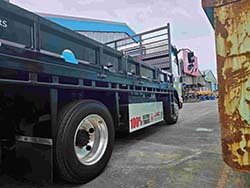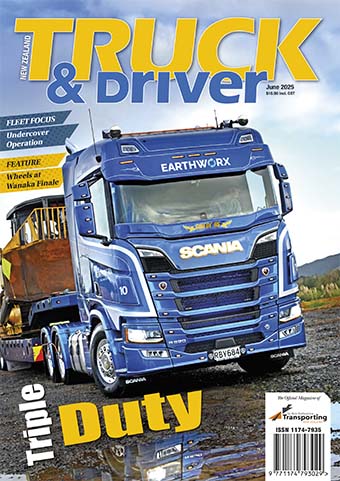
NZ Transport Agency Introduces Class 1 Exemption for Electric Trucks
Posted: 06-Mar-2025 |
In a significant move to support New Zealand's transition to cleaner commercial transport, the NZ Transport Agency (NZTA) has introduced a temporary exemption allowing Class 1 license holders to drive electric trucks weighing up to 7,500kg. This landmark decision, which came into effect on February 28, 2025, addresses a key regulatory barrier to electric vehicle adoption in the commercial sector and represents an important step toward decarbonizing New Zealand's road freight industry.
The traditional driver licensing framework in New Zealand has created an unintended obstacle for the adoption of electric trucks. Under normal circumstances, drivers with a Class 1 license are restricted to vehicles with a gross laden weight (GLW) of up to 6,000kg. However, the additional weight of batteries in electric vehicles often pushes otherwise equivalent electric trucks over this threshold.
As NZTA explained in its official documentation: "Keeping battery electric trucks below the 6000kg weight threshold for driver licence Class 1 greatly reduces payload due to the weight of the batteries. Achieving the equivalent payload in a battery electric truck requires the driver to move up to a Class 2 licence, creating a barrier in the uptake of BEVs."
This regulatory mismatch has effectively penalized businesses seeking to adopt cleaner transport options by imposing additional compliance costs without any safety benefits. Companies wanting to transition their fleet to electric vehicles faced the prospect of having to: Train and license their drivers to Class 2 standards. Comply with more stringent work time and logbook requirements. Accept reduced payload capacity in their vehicles
To address this challenge, NZTA Director of Land Transport Brent Alderton signed the Land Transport (Driver Licensing) Rule 1999: Drivers of Electric Trucks (up to 7,500kgs) Exemption Notice 2025 on February 26, 2025.
The exemption enables drivers with a full Class 1 license to legally operate electric trucks with a gross laden weight of up to 7,500kg—a 1,500kg increase from the standard 6,000kg limit.
This three-year exemption will remain in effect until February 28, 2028, providing a temporary solution while the government considers potential wider changes to the Driver Licensing Rule to better accommodate battery electric vehicles (BEVs) in the land transport system.
Not all electric trucks qualify for this exemption. The NZTA has established strict criteria to ensure that vehicles operating under this exemption maintain high safety standards.
To qualify, an electric truck must be: A battery electric vehicle (BEV) within the same model range as a diesel equivalent weighing under 6,000kg. Equipped with the same braking system as its diesel counterpart. Designed with batteries integrated within the chassis. No larger in dimensions than the largest diesel version in the up to 6,000kg range
Additionally, eligible vehicles must include several advanced safety features: Regenerative braking. Automatic emergency braking. Electronic stability control. Lane departure warning or lane keep assist. Batteries positioned as low as possible in the chassis (vehicles with batteries mounted above the payload center of gravity are not eligible)
The NZTA notes that these safety features, combined with the improved stability provided by the low placement of batteries, can actually reduce the likelihood of crashes occurring, though they acknowledge that the slightly higher mass could increase crash severity. Overall, the agency determined this poses "minimal elevated safety risk."



 + EQUIPMENT GUIDE - FREE
+ EQUIPMENT GUIDE - FREE
